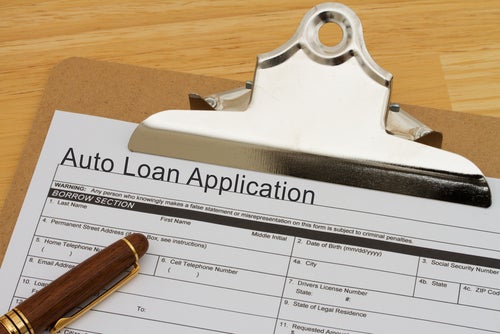
For established adults with good credit, there may come a time when a loved one asks for help to qualify for a loan. Of course, you’d love to use your good credit history and financial stability to help, but co-signing a loan is a serious obligation that you need to consider carefully. Even with the most trusted and dear loved ones, you should very carefully consider any request.
Here are five questions you should ask before deciding whether you can cosign a loan:
Why Can’t the Borrower Qualify Themselves?
Often, young adults can’t qualify for loans because they have little to no credit history. This is just a condition due to their age. However, there are other reasons a person might not be able to qualify – including insufficient income or poor credit due to missing payments. Make sure you understand the borrower’s situation – and why they need your help – before you sign anything legally binding.
How Could It Affect My Credit?
Even though you aren’t the primary borrower, the debt on any co-signed loans will show up on your credit report and impact your credit score – including your credit utilization and total debt amount. In the future, lenders will see this debt as your debt. In addition, if the primary borrower misses a payment or defaults, they can do enormous damage to your credit score that will stay with you for seven years.
How Could It Affect My Finances?
Simply put, you should never co-sign a loan you can’t afford to pay yourself. Even if your primary borrower is a dependable person who pays all their bills on time, a loss of income or emergency could cause them to fall behind on payments. If the borrower defaults, you could be liable for the full amount of debt. In some states, lenders can even hold you responsible without even trying to first collect from the primary borrower. If you used collateral to qualify, your property could be confiscated.
Therefore, you need to know if you can afford the monthly payment, and if it would negatively affect your ability to afford your other financial obligations. If it would, you should not co-sign the loan.
Can The Primary Borrower Afford the Loan?
You also need to know about the borrower’s finances. Can they afford the payment on their loan they’re applying for? If it seems unrealistic based on their income, you should decline to co-sign. Helping your borrower to live outside their means won’t actually help them in the long run.
What are the Terms of the Loan?
If you are still seriously considering co-signing a loan, you should learn the details of the loan agreement in and out – as much as if it were a loan that only you were responsible for. Make sure you get copies of the contract, understand your responsibilities vs. the borrower’s responsibilities, and how you can monitor the progress of the loan.
In Closing
In many cases, there may be alternatives to help out your loved one without having to co-sign a loan. For instance, a young person who needs help building credit can get a secured credit card as an alternative to a loan. In many cases, federal student loans are much more borrower-friendly than private student loans, and don’t require cosigners.
Whatever the reason for the loan, ask yourself these questions before you even entertain the idea of co-signing a loan. Even then, it is not advisable – but if you feel you must, check out our post on establishing ground rules when co-signing loans.
Questions about credit repair?
Chat with an expert: 1-800-255-0263






